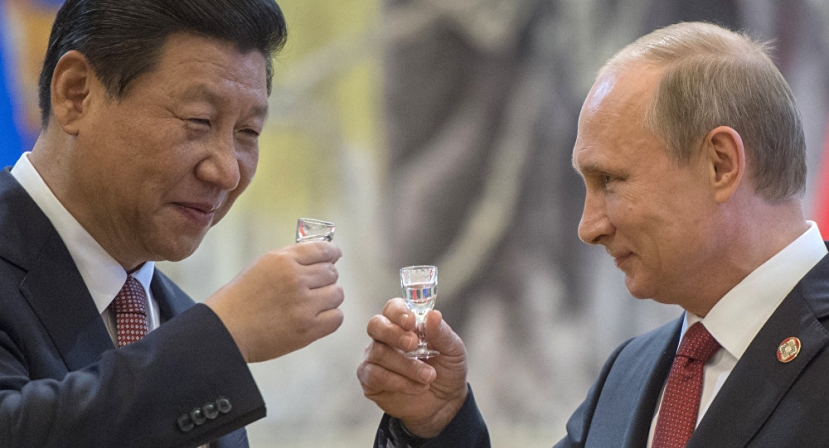True, Putin's visit has resulted in key joint initiatives becoming a reality.
"When it comes to economic cooperation, several major agreements that were in the pipeline for a long time have been finalized," the senior research fellow at the Center for Comprehensive European and International Studies of the National Research University Higher School of Economics noted.
Kashin mentioned a deal that will see the Chinese invest $12 billion into Russia's Yamal LNG project aimed at producing liquefied natural gas in the Arctic. China Development Bank and Export-Import Bank of China are reported to have transferred the first $497.4 million tranche to Novatek on Wednesday.
Another key joint endeavor will focus on designing a wide-body aircraft. The agreement helps to assure Russia "that it will take part in this extremely important and large-scale Chinese project," the analyst explained. "In its turn, this could be a decisive factor with regard to Russia's civil aircraft industry."
In addition, both countries have signed a deal that will pair Russian Helicopters and Avicopter tasked with developing an Advanced Heavy-lift (AHL) helicopter. The project was first proposed in 2008 following the Sichuan earthquake that claimed the lives of nearly 70,000 people. The Chinese were impressed with the Russian-made Mil Mi-26 heavy transport helicopters that took part in rescue efforts.
In general, the outcomes of the visit point to a blooming relationship between the two countries, the analyst observed.
Indeed, Russia and China are getting closer to each other, with the blooming relationship fueled by joint business interests and mutual concerns with regard to global challenges. Energy cooperation is a fine case in point of the increasingly warm ties.
Consider this: "For the first time in history, Moscow has become the largest or second-largest crude supplier to Beijing, which puts them basically on par with Saudi Arabia," Alexander Gabuev, a senior associate and the chair of the Russia in the Asia-Pacific program at the Carnegie Moscow Center, wrote for War on the Rocks.
"Now that Russia and China are expanding the pipelines that connect their energy networks, this trend is likely to continue," he added.
According to latest figures, Russia has retained its leading spot as China's key oil supplier. Russian oil exports to China increased by nearly 42 percent in the first five months of 2015. In May, Beijing imported approximately 1.24 million barrels per day.
Other areas of cooperation include but are not limited to arms deals (China will receive Russia's cutting-edge S-400 air defense systems and Su-35 fighter jets) and efforts to create what Gabuev described as "a parallel financial infrastructure that will bypass the United States and thus be immune to international sanctions."

